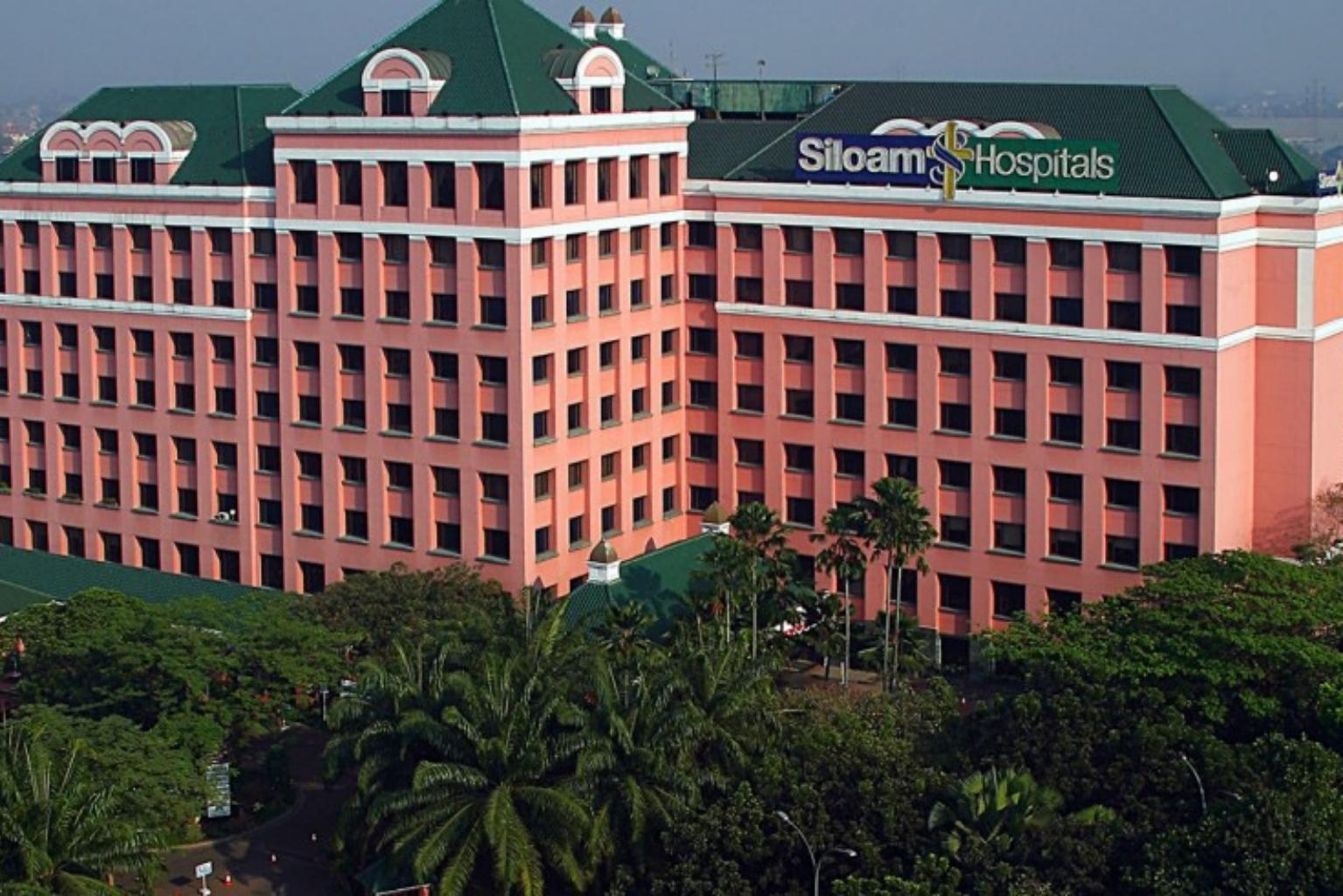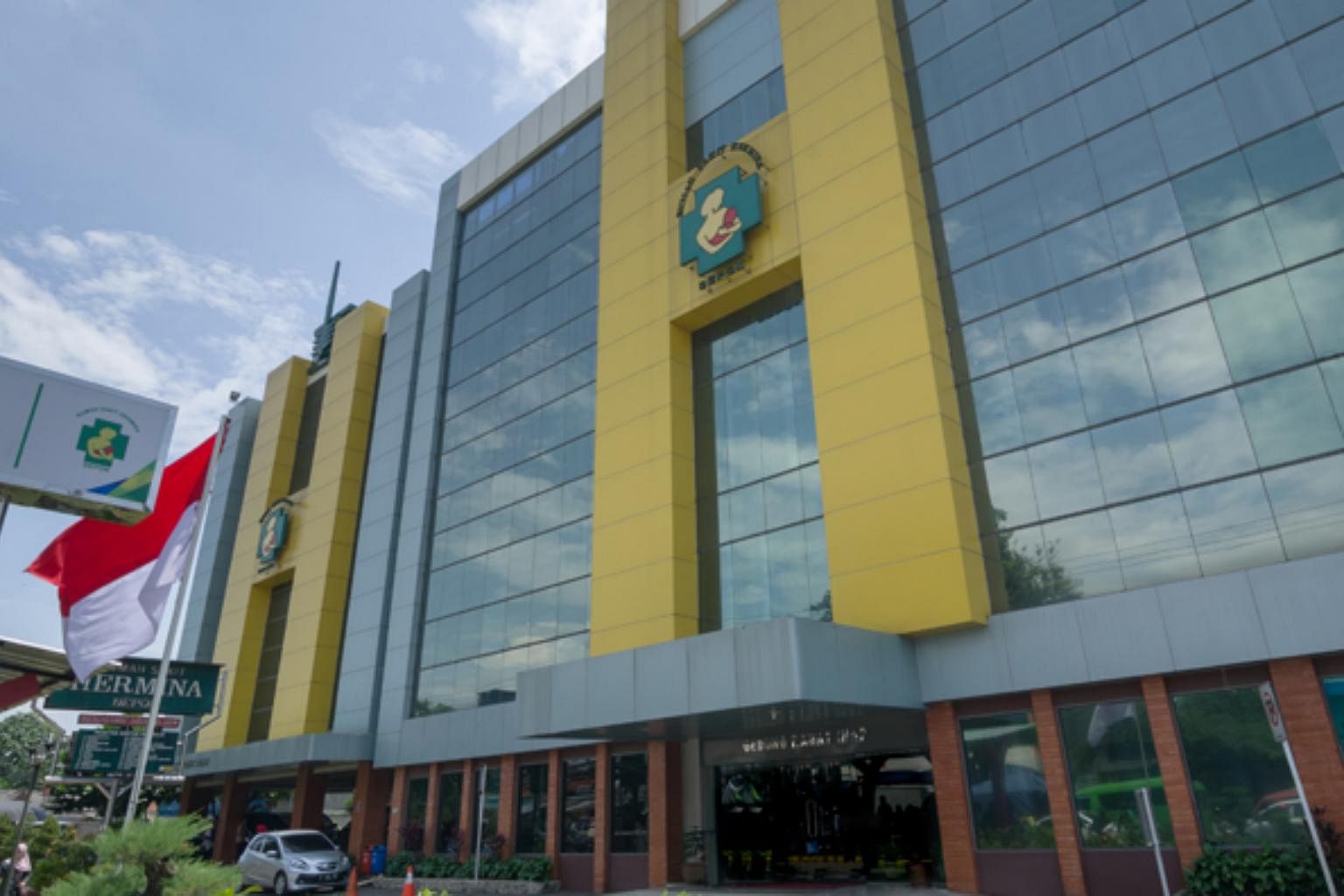Private hospitals in Indonesia woo patients as Covid-19 clips medical tourism
Sign up now: Get insights on Asia's fast-moving developments

Siloam International Hospitals, the country's biggest private healthcare provider, said its net profit jumped more than fourfold.
PHOTO: SILOAMHOSPITALS.COM
JAKARTA - During the first year of the Covid-19 pandemic, cut off from her regular doctor at Gleneagles Hospital in Singapore, Ms Fenny Nelly, 61, made do with regular online consultations and medication that she could buy in Jakarta.
But, as restrictions, including border controls, wore on, the travel agency owner sought recommendations from friends for a local doctor who could treat her rheumatoid arthritis, eventually finding an autoimmune specialist at a hospital in Pluit in northern Jakarta where she lives.
"Doctors in Indonesia are ok too," Ms Fenny told The Straits Times.
Once the region's biggest cohort of so-called medical tourists to Singapore, Thailand and Malaysia, Indonesians are being forced to give their own healthcare services a second look as Covid-19 travel restrictions linger.
Until recently, what was pushing many Indonesians to seek their hip replacements or heart stents overseas was concern that their own doctors - if they could find one - did not measure up.
In 2018, Malaysia alone recorded 670,000 Indonesians seeking medical treatment there, according to that country's most recent data.
On average, Indonesia has four doctors for every 10,000 of its citizens - half the number available in Thailand, according to World Bank data.
Now some Indonesians are shaking off Covid-19 jitters and seeking local options, triggering a big jump in earnings for the country's private hospital operators.
Late last month, Siloam International Hospitals, the country's biggest private healthcare provider, said its net profit jumped more than fourfold as its hospitals admitted more non-Covid-19-related patients and conducted more surgeries and other treatment akin to procedures before Covid-19, which have come to be known in the industry as base cases. Covid-19 testing and treatment accounted for 15 per cent of the company's revenues.
"The numbers have been driven both by testing and treatment for Covid but also a recovery in base cases as the fear of visiting hospitals subsided during the quarter," said Mr Angus Mackintosh, an analyst with CrossASEAN research.
To be sure, the pandemic dealt a blow to healthcare providers and professionals. Since the beginning of the pandemic, more than 1,200 doctors, nurses and midwives have died from Covid-19.
In the months immediately after the first cases emerged in Jakarta in March 2020, patients stayed away from hospitals in droves. Siloam reported a 149 billion rupiah (S$14 million) loss during the three months ended in June 2020.
Now, patients are coming back for elective surgeries. Siloam hospitals accommodated 32,000 surgeries during the first half of the year - not far off the 35,000 during the same period in 2019 before the onset of the pandemic.
Mr Varun Khanna, chief commercial officer at Siloam International Hospitals, says big investments in equipment and an ability to attract the country's best talent means service is on a par with regional rivals.
"The infrastructure and the technology is the same as any of the top flight hospitals," Mr Khanna said.
"People are coming back again and again."
The company has seen a surge in demand for non-Covid-19 treatment from corporate clients, like Mr Harneet Singh, 42, chief executive of Dominos Pizza Indonesia.
Mr Singh said his treatment for chronic high cholesterol at a Siloam hospital in Jakarta was enough to convince him and his wife to have their second daughter there, too, rather than return to India.
"I was impressed with the service," Mr Singh told ST.
"It's better to have my daughter here rather than be separated."
But hospitals in Indonesia have also been saddled with tales of high-handed treatment and botched care from doctors who - because they are thinly stretched - tend to spend only a few minutes with patients.
A 2008 case gained national attention when Omni Hospitals Group sued one of its patients for defamation when her e-mail to friends containing complaints of misdiagnosis leaked to the media. The Supreme Court overturned the suit in 2012.
A year later, the Indonesian Medical Disciplinary Board released a report saying it uncovered more than 180 cases of malpractice during the six years to 2012.
"When the perception sets in, it's hard to reverse," Mr Khanna said.
The country's near total ban on foreign practitioners not only limits access to talent but also narrows training opportunities for newly minted physicians.

Even so, private hospitals are hoping that Covid-19 offers a chance to put their best foot forward.
At Medikaloka Hermina, which operates 42 hospitals across the country catering to middle- and lower-income patients, earnings tripled during the first half thanks to increasing numbers of non-Covid-19 patients.
At its 230-bed Depok hospital outside Jakarta, Dr Lies Nugrohowati talks up the facility's diagnostic equipment including a CT scan and an MRI.
"This is a time of challenges and opportunities for us," Dr Lies, a director at the hospital, told ST.
"We have complete services here. There's no need to go far away."


